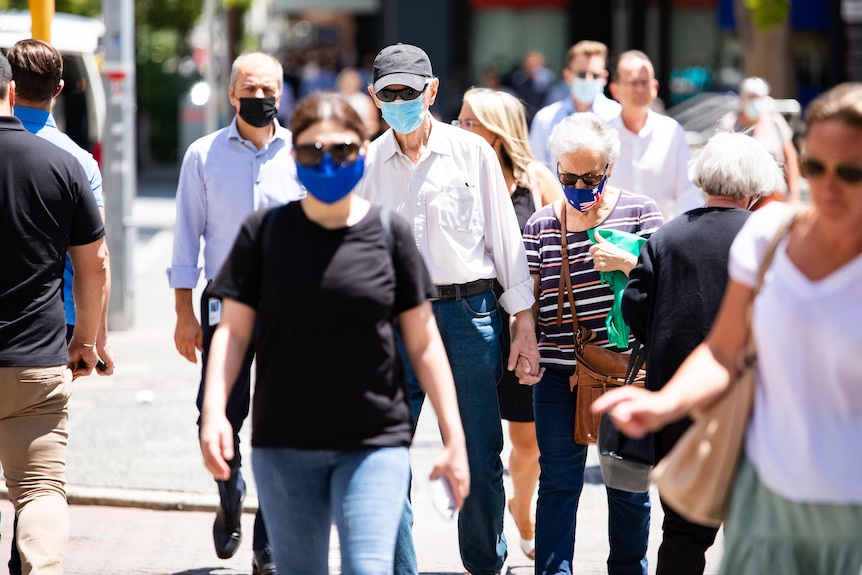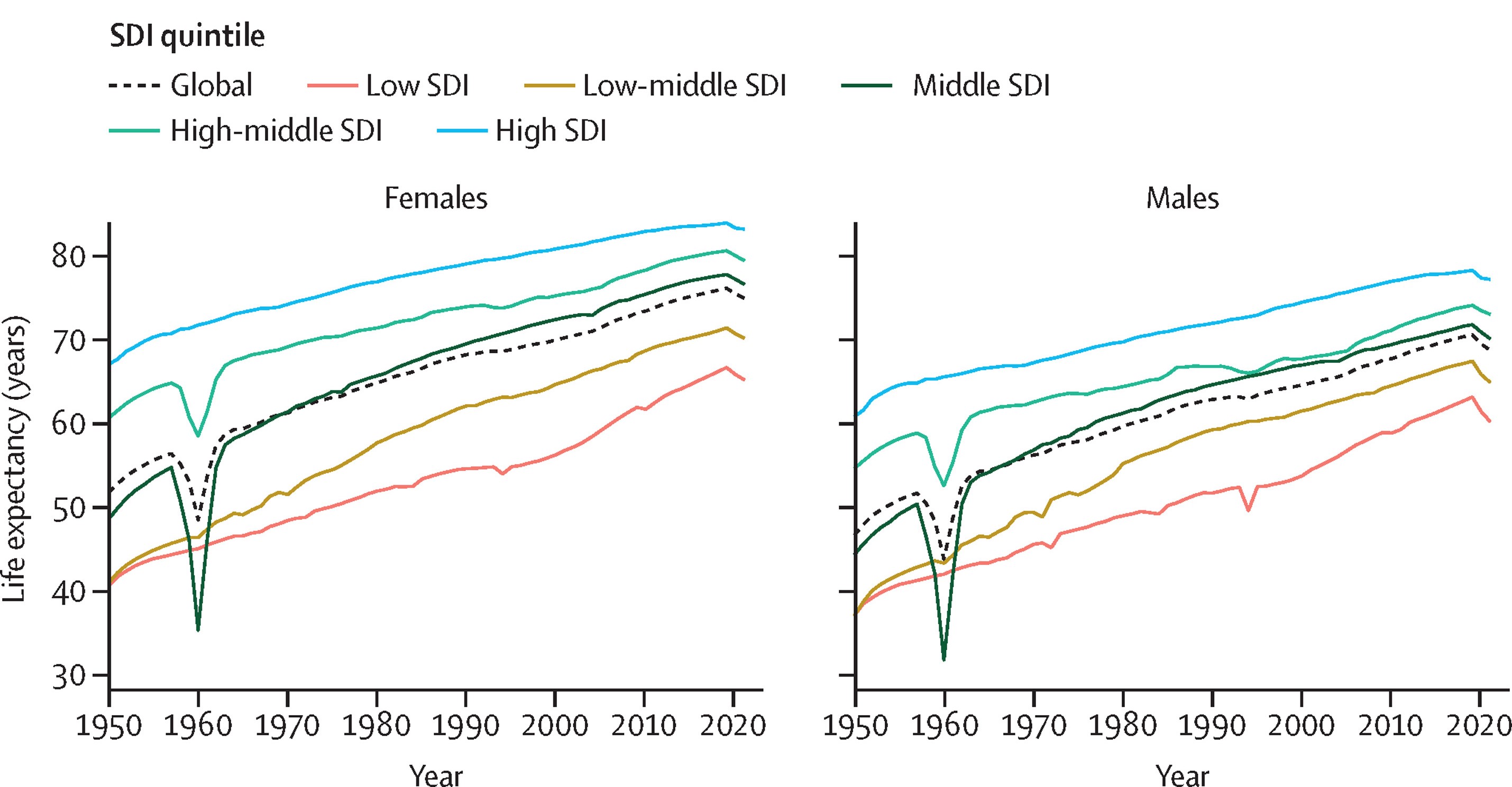According to study results, the COVID-19 pandemic led to a decline in global life expectancy by 1.6 years. Interestingly, Australia stood out as one of the few countries that did not experience this decrease.
The initial study results, focusing on global life expectancy amid COVID-19, were recently published in The Lancet medical journal on Tuesday (local time). This marks the first comprehensive analysis of the pandemic’s impact on human health to date, including insights on Australia’s situation.
In the study results, it was discovered that a decline in global life expectancy due to COVID-19 affected most of the 204 countries examined. Particularly, the Latin America and Caribbean region saw the most significant decrease of 3.7 years in life expectancy. Australia was also part of the study.
Comparing Australia’s COVID-19 Strategy with Global Life Expectancy Study Results
Amid the global fight against COVID-19, Australia’s expenditure during the initial three years of the pandemic has been revealed through recent data analysis.

Impact of COVID-19 on Global Life Expectancy
According to a recent study, the COVID-19 pandemic has had a significant impact on global life expectancy, surpassing the effects of conflicts and natural disasters in the last fifty years. The study’s co-first author, Austin Schumacher, an Acting Assistant Professor at the University of Washington’s Institute for Health Metrics and Evaluation (IHME), highlighted the profound consequences of the pandemic.
Dr. Schumacher emphasized that life expectancy decreased in 84% of countries and territories during the pandemic, underscoring the severe effects of new pathogens. The study, conducted by IHME, an independent health organization, shed light on the global repercussions of COVID-19.
Professor Paul Griffin, the Director of Infectious Diseases at Mater, noted that the study also highlighted Australia’s response to the pandemic. Australia stood out among 32 countries by experiencing an increase in life expectancy between 2019 and 2021, contrary to the global downward trend.
Australia’s Remarkable Success Amid the Global Pandemic
Australia’s ability to defy the odds during the COVID-19 crisis has been a subject of admiration worldwide. Professor Griffin credited the country’s exceptional outcome to the stringent measures implemented to contain the virus, such as the enforcement of mandatory face masks and strict lockdowns.
Acknowledging that these measures were not flawless and presented challenges, Professor Griffin emphasized their overall effectiveness. He stated, “Despite some hurdles, our efforts proved to be relatively successful.”
The sacrifices made in implementing these control measures were substantial, impacting a significant portion of the population. However, the positive results achieved in Australia far outweighed the costs incurred. This success story stands as a testament to the benefits that few other nations were able to replicate.
According to the study’s findings, Australians enjoyed a remarkable life expectancy of 83.4 years in 2021, surpassing the global average of 71.7 years for the same period.

Impact of Global Life Expectancy and COVID-19 on Different Income Countries
Data analysis revealed that nations with higher income levels and better education systems tend to experience lower rates of excess deaths linked to COVID-19, as reported by ABC News’ Keane Bourke.
Discussing the study results, Professor Griffin emphasized the concerning decline in life expectancy in lower-income countries affected by the pandemic, highlighting the profound implications for global equity.
He noted that countries with limited financial resources faced more significant challenges during the crisis, while wealthier nations took advantage of their economic strength to secure excessive quantities of vaccine doses, surpassing actual requirements.
These findings underscore the critical need for a fair and inclusive approach in addressing such global health crises, particularly in ensuring equitable access to resources like vaccines.
Global Impact of COVID-19 on Mortality Rates
The recent study by IHME revealed a significant surge in global mortality rates, especially among individuals aged 15 years and above. The data indicated a 22 per cent increase for men and a 17 per cent rise for women.
Australia, on the other hand, experienced a minimal 0.01 per cent uptick in total deaths attributed to COVID-19.
According to the study results, the spike in mortality rates worldwide, particularly among the elderly population, is unprecedented in the last 70 years.
Interestingly, the mortality rate for children under five years old showed little variation, with a notable 7 per cent decrease in the number of deaths from 2019 to 2021.

Global Life Expectancy Trends and COVID-19 Impact
In the analysis of global life expectancy trends from 1950 to 2021 across countries with varying socio-demographic indexes (SDI), a notable fluctuation occurred in 1960 attributed to a severe famine in the south-east Asia, east Asia, and Oceania region, as illustrated in the chart provided by The Lancet.
According to the study results, an estimated total of 15.9 million individuals lost their lives as a result of the COVID-19 pandemic in the years 2020 and 2021 combined. This figure encompasses not only direct COVID-related fatalities but also indirect deaths stemming from the social, economic, or behavioral repercussions associated with the pandemic.
While nations with higher levels of income and education generally exhibited lower rates of excess mortality due to COVID-19, the research findings suggest that the correlation between these factors was deemed by the study authors as “not particularly strong.”
Staying Informed: Global Life Expectancy and COVID-19 Updates in Australia
As the school holidays draw to a close and individuals transition back to their work routines, it is crucial for Australians to remain vigilant in light of the potential resurgence of COVID-19. Recent study results highlight the importance of taking necessary precautions to mitigate the impact of another significant wave of the virus.

### Impact of COVID-19 on Global Life Expectancy
Some have argued that the higher excess death rates in Bolivia and South Africa, compared to countries with a similar profile, were partly due to “relaxed containment strategies and vaccine hesitancy.”
The authors highlighted that mortality outcomes during the COVID-19 pandemic were not solely determined by socio-demographic index (SDI).
Factors such as vaccination efforts, public policies, and individual behavioral changes likely played a role in influencing the severity of the pandemic across countries and territories at all levels of SDI.
### Insights from Professor Griffin
Emphasizing the importance of continued precautions against the spread of the virus, Professor Griffin stressed the need for Australians to keep the health impact of COVID-19 as minimal as possible.
While acknowledging that the worst of COVID-19 is likely in the past, he cautioned against interpreting data to suggest that the problem has been completely resolved, as it continues to persist.
### Life Expectancy Trends in Australia
According to the Australian Bureau of Statistics (ABS), Australia experienced a slight decrease of 0.1 years in life expectancy from 2020 to 2022, a period not covered in the IHME study.
Exploring Global Life Expectancy Amid COVID-19: Insights from Australia Study Results
Comparing Australia’s COVID Strategy with Other Countries: Insights from Recent Data
Exploring global life expectancy in the context of COVID-19, a recent study sheds light on Australia’s approach and outcomes.

Insights into COVID-19 Impact on Global Life Expectancy: A Study of Australia’s Latest Numbers

A German Man Receives 217 COVID Shots in 29 Months
A 62-year-old man from Germany has made headlines after receiving an astonishing 217 COVID shots within a span of 29 months. This extraordinary case sheds light on the global life expectancy and the impact of COVID-19 on individuals worldwide, including in countries like Australia. Let’s delve into the study results to understand the implications of such a remarkable feat.

To delve deeper into global life expectancy, COVID-19, Australia, and study results, explore the following topics: Australia, COVID-19, Government and Politics.


